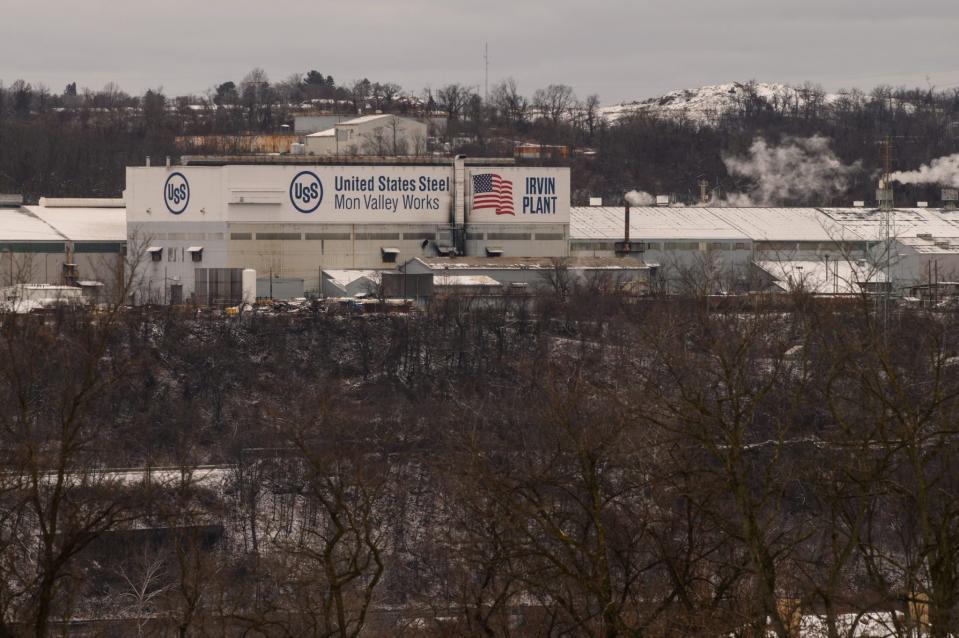Japan’s Nippon Steel appeals to ‘an alliance that advances shared values’ between Washington and Tokyo as it tries to sell its $14bn deal for U.S. Steel

Nippon Steel’s president, Eiji Hashimoto, is again trying to characterize his $14.1 billion play for U.S. Steel in the same light as the U.S.’s decades-long security relationship with his home country of Japan.
“Our investment reaffirms the strength of the U.S. economy, the value of American employees, and the ability of the U.S. steel industry to compete globally," Hashimoto and Nippon steel executive vice president Takahiro Mori wrote in an opinion piece for the Wall Street Journal, published Monday. “The U.S. and Japan benefit from an alliance that advances shared values, and our two companies can do the same.”
The two Nippon Steel executives promised not to “shift existing production or American jobs overseas,” and repeated an earlier pledge to abide by existing labor agreements with U.S. unions.
The takeover might even improve job security for U.S. steelworkers as “U.S. Steel will have the added financial strength of a larger organization with more capital," they wrote.
Hashimoto has previously cast the bid for U.S. Steel in geopolitical terms. Soon after the Japanese steelmaker announced its takeover, the Nippon Steel president said his goal was to build a steelmaking giant in the “free-competition world,” pointedly leaving out China (which currently dominates the global steel sector).
Last December, Nippon Steel agreed to purchase U.S. Steel for $14.1 billion, equal to a hefty $55 per share, a significant premium above the Pittsburgh company’s then share price of $39.55. A merged Nippon Steel-U.S. Steel would be the world’s third-largest steel manufacturer, behind the Chinese state-owned Baowu Group and European steelmaker ArcelorMittal.
Political opposition
Nippon Steel’s attempt to buy up the over-120-year-old U.S. Steel is getting blowback from both U.S. politicians and unions heading into the 2024 elections.
The United Steelworkers union opposes the acquisition, with president David McCall claiming in December that neither Nippon nor U.S. Steel consulted with the union as required in current agreements.
U.S. politicians in battleground states also blasted the deal. Sen. J.D. Vance (R-Ohio) characterized the deal as auctioning off “a critical piece of America’s defense industrial base,” while Sen. John Fetterman (D-Pa.) called the agreement “outrageous.”
Economists and other analysts disagree, pointing to Japan's longstanding relationship with the U.S. "Japan is a staunch ally," former U.S. Treasury Lawrence Summers said on Bloomberg over the weekend. saying there was "no remotely plausible national-security rationale" for blocking the deal.
What happens next?
The Committee on Foreign Investment in the U.S. (CFIUS) is reportedly in the early stages of reviewing the deal. CFIUS reviews the national security implications of foreign investments into U.S. companies, and is empowered to block deals.
Nippon Steel’s deal to buy U.S. warrants “serious scrutiny,” National Economic Council director Lael Brainard said Monday at a Brookings Institution briefing, citing steel’s “very important national security considerations.”
Executives from the Japanese steel company went to Washington D.C. last week to meet with lawmakers, including Sen. Fetterman, Nikkei Asia reported Monday citing unnamed sources.
Both U.S. Steel and Nippon Steel expect the deal to close this year, with the former suggesting it could come as early as the second quarter. Yet a security review of the U.S. Steel deal could last until 2025, Bloomberg reported earlier this month.
This story was originally featured on Fortune.com

 Yahoo Finance
Yahoo Finance 